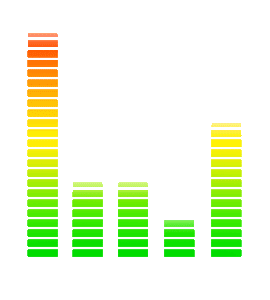HMC Reminds the Public that ATV Safety is Everyone’s Responsibility
- Qabayan Radio

- Dec 7, 2023
- 3 min read
29 ATV users required ambulance assistance since start of November – half as many as in the whole of last year’s camping season.

Doha, 5 December 2023: The Hamad Injury Prevention Program (HIPP) of the Hamad Trauma Center is encouraging every rider, driver and their families to be aware of the “Know Before You Go” safety tips and recommendations to stay safe on their quad bikes or all-terrain vehicles [ATVs] during this year’s camping season.
The advice comes as data from the Qatar National Trauma Registry shows that 29 patients have required ambulance transportation for ATV-related injuries at the Sealine or Mesaieed areas since the camping season began at the start of November. More than 75 percent of these injuries occurred on a Friday as a result of a rollover to a rider who had no protective gear. More than half of these suffered from moderate to severe injuries that required treatment at the Hamad Trauma Center.
“There is much to be learned from this alarming trend that serves as the basis for our safety recommendations. Every family in Qatar, that engages in activities using off-road vehicles, must know and implement them to make their camping season safe and injury-free,” said Dr. Rafael Consunji, Director of the HIPP, which is the community outreach arm of the Hamad Trauma Center.
Most off-road crashes occurred on a Friday due to the congestion caused by the high number of ATVs in the open and uncontrolled areas. Dr. Consunji further recommended: “Avoid the high- risk crowding by going to Sealine earlier on Friday or, even better, on a Saturday morning. Using the designated areas, managed by the Qatar Tourism Authority, ensures that the volume of users is controlled and that the courses are maintained to meet global standards for safety.” “Almost all ATV victims were injured due to rollovers; this is due to operator inexperience, unfamiliarity with the terrain and unsafe dune gradients. This is why we recommend the use of designated areas only. These courses are safely designed and maintained, with specific tracks designed for different levels of operator skills,” said Dr. Aisha Abeid, Assistant Director of the HIPP.
“Sadly, very few of the victims were using helmets and protective gear. We strongly appeal to parents and families to make sure that their sons and daughters are using full protective gear whenever they operate an ATV,” explained Dr. Abeid.
HIPP “Know Before You Go” Safety Tips
Young children should not operate ATVs/quad bikes.
Do not operate quad bikes without PPE. Helmets, gloves, ankle boots and protective eyewear are needed to protect the quad bike driver in the event of a crash.
ATVs should be used in designated areas and locations only. These as these locations are under the direct supervision of the responsible authorities, like the Traffic Department, Mawater or Qatar Tourism and they are safely designed, maintained and monitored. Furthermore, the HMC Ambulance Service is present in these areas, to provide immediate medical response if needed.
No passengers should be allowed on a quad bike, unless it is specially designed for passengers. About 25 percent of all victims are injured as passengers.
Avoid peak periods of activity. Half of victims were injured on Fridays, between 2pm and 10pm. The congestion and density of different kinds of off-road vehicles added to the mix of experience levels and driving expertise makes this period the most dangerous.
Ride responsibly: The most common injury mechanisms are collisions and rollovers. Collisions may be with fixed objects [suddenly appearing walls, posts etc], with another quad bike or with other vehicles. Children are more likely to be injured in collisions or in lateral rollovers while adults were most injured in backward rollovers, a common mechanism when ascending hills or dunes or doing ``wheelies'' or stunts.
Quad bikes are for off-road use only, they do not have the necessary features to turn, accelerate and mix with other motorized traffic and should not be driven on regular roads.












Comments